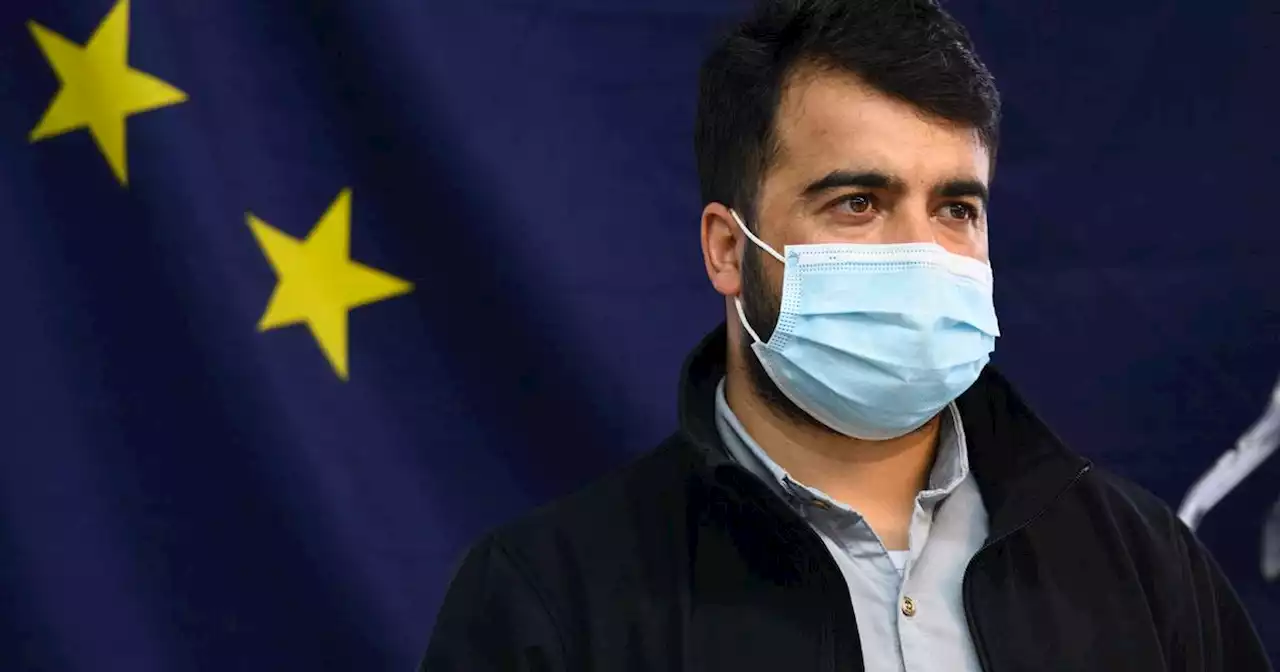The former interpreter left Afghanistan weeks before the Taliban took over. He won’t be satisfied until his family joins him.
Refugee Assistance and Immigration Services education and employment specialist Brigit Reynolds and reception and placement coordinator Sayed conduct a cultural orientation class for recently-arrived people from Afghanistan to Anchorage on December 13, 2021.
“Who wants to be brave and stand up and tell me your name and where you are from?” asked Brigit Reynolds, an education and employment manager. Sayed relayed the question to the room. Many of them had never left their home country before, he said.Sayed, a reception and placement coordinator for RAIS, feels proud to offer help and be a trusted adviser to Anchorage’s growing Afghan community. RAIS is helping resettle 100 Afghan people here in the wake of the U.S.
“I was seeing a lot of development everywhere ...,” Sayed said. “That created a hope for us that we are on the right path and we are going to the right direction.” He recalls the morning after the Taliban took control of Kabul in 1996. The following morning, residents were instructed to come to a square near the presidential palace to witness the gruesome hanging of former president Mohammad Najibullah and his brother. Sayed was about 7 years old.Sayed’s mother, the family’s only provider, moved them to Nasir Bagh, a refugee camp for tens of thousands in Peshawar, Pakistan.
Linguists had the highest price on their head, he recalled — 100,000 Afghani, or about $1,800 at the time. In 2014, he began his application for a Special Immigrant Visa, a possibility extended to a limited number of Afghans who worked with the U.S. “I decided I have to use this,” he said. “I have to take this chance.”
In May 2020, an email landed that Sayed thought would never come. He was directed to get a medical exam and complete other final steps toward receiving his visa. His family had grown in the years since he first applied, and he felt unprepared to resume planning for a move to the U.S.His wife, who worried for his safety, supported him.His departure in midsummer came just before the rapid takeover of the Afghan government by the Taliban. Sayed didn’t think it could happen so quickly.
In his role with RAIS, Sayed is one of the first to greet newly arrived Afghan people at the airport. Carrying two phones and a thick notebook, it’s his job to answer questions, ease confusion and help them get what they need.“I don’t mind. I just keep answering,” he said.
